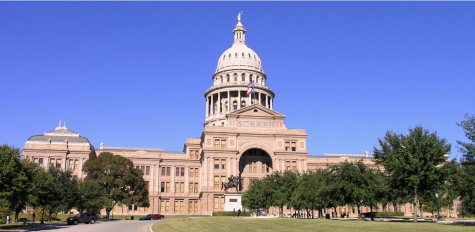Texas Approves Strictest Abortion Laws in Recent History
October 17, 2021
Texas established a new abortion ban that went into effect on September 1, 2021.
Texas’s new law is the most restricting in the country, where abortion is outlawed after a fetal heartbeat is detected around six weeks into the pregnancy. Many women do not know that they are pregnant at six weeks. It does not allow them to make a decision. There are medical exceptions, but no exceptions are made for rape or incest.
The new law is preventing about 90 percent of women from getting an abortion in Texas. They are being forced to continue with an unwanted pregnancy.
The law is enforced by citizens. The woman cannot be sued but other parties involved can be. It is different from other laws because it is going after the doctors instead of the people getting abortions.
“I’m afraid for my personal future and the future of my career as a result of this” said Dr Ghazaleh Moayedi, an OB/GYN, who performs abortions in her practice in Texas, while speaking to the BBC.
This ban is also targeting the less fortunate who cannot get access to get an abortion out of state. Drivers are hard to come by because they can face legal action for transporting someone to an appointment.
Abortion became legal on a federal level in the United States on January 22, 1973. The Supreme Court ruled that excessive state regulations against abortions were unconstitutional in Roe versus Wade. It gives women the right to access safe and legal abortion.
Unlike other countries, who have lessened the laws surrounding abortion, the United States has continued to make stricter laws since Roe versus Wade. Texas’s laws are more restrictive than most countries in Europe.
“I think very few Americans realize just how radical and out-of-step America’s abortion laws are in comparison to the rest of the world,” said Angelina Nguyen to the Washington Post.
The new abortion ban in Texas has also been facing backlash.
On Wednesday, October 6, Federal Judge Robert L. Pitman paused the ban in Texas. It was later overturned by a Federal Court.
“Restrictive abortion laws don’t lead to fewer abortions; they only lead to more unsafe abortions,” said Katherine Mayall, a director at the Center for Reproductive Rights, to the Washington Post.
Abortion rates tend to decrease when access to contraceptive services and sexual education is more widely available.
The abortion ban is becoming a major focus in the United States, and it is putting Texas in the spotlight.
A poll done by Planned Parenthood shows that 79 percent of people in the United States do not want to overturn Roe versus Wade, but the most outspoken people and the people in positions of power are the perspectives that are on the news the most and they warp people’s perceptions.
“I don’t like the way it has made Texas as a state look,” said Mrs. Kenney, a Wilmington Friends School teacher who used to reside in Texas. “I don’t like this sense of the whole place and all the people in it as sort of supporting this … the ban on this medical procedure. I don’t like that because I don’t think it is accurate.”































